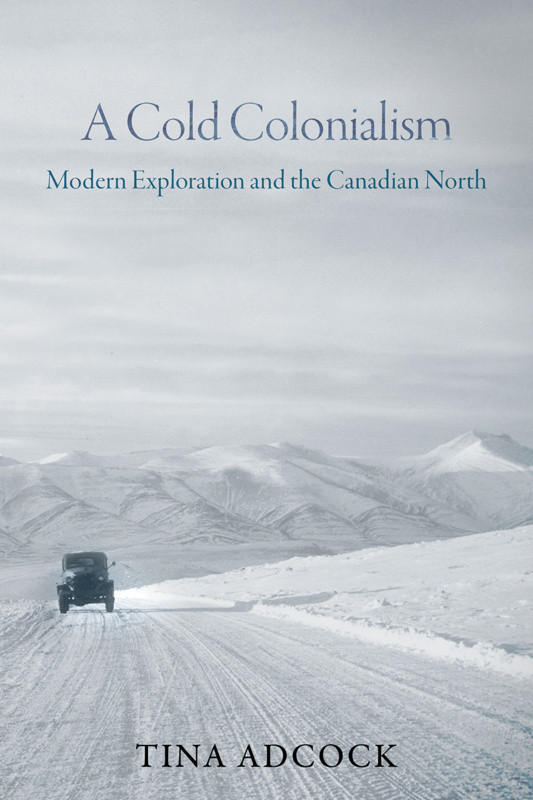Tina Adcock discusses "A Cold Colonialism: Modern Exploration and the Canadian North".

Tina Adcock, assistant professor of history at Simon Fraser University (Canada), will discuss her book A Cold Colonialism: Modern Exploration and the Canadian North (University of British Columbia Press, 2025) in the Greenhouse environmental humanities book talk series on Monday, 8 September 2025, at 16:00 Central European time / 10:00 Eastern / 7:00 Pacific.
Zoom link: https://stavanger.zoom.us/j/65369186685?pwd=5dtVRatgLiXVrq4JOEZ730NabZwIGY.1
Exploration has long been pivotal to southern engagements with northern Canada, but it is most often associated with the nineteenth century or earlier. A Cold Colonialism offers the first extended examination of twentieth-century exploration in the Canadian North. Modern exploration helped southerners establish and maintain distinctive kinds of colonial and settler colonial power over northern Indigenous homelands.
Who explored the North between 1918 and 1965? What forms did exploration take? What did it mean to explorers and others affected by it? Tina Adcock focuses on four representative explorers with richly documented careers: mining engineer George Douglas, surveyor Guy Blanchet, ethnologist Vilhjalmur Stefansson, and filmmaker Richard Finnie. Each used exploration to grapple with key, often discomfiting aspects of modernity, including industrialization, urbanization, and the specialization of knowledge.
Despite limited experience in and knowledge of the Canadian North, these explorers helped southern militaries, industries, and governments exert control over northern peoples and lands. Each also claimed belonging in and authority over the North, speaking over people who had long resided there and better understood the region. The ways that explorers felt about, thought about, and moved through the North still resonate among southern settlers in Canada today.